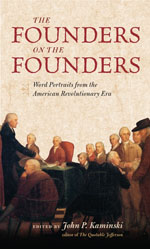Last Friday I had an unusual experience–the chance to celebrate Ben Franklin’s birthday in Philadelphia.
Franklin was born in January 1706 in Boston, but of course he’s most associated with Philadelphia. Every year, the city celebrates Franklin’s life.
This year I was able to attend due to the generosity of Paul Kerry and his affiliated research center. It was quite an experience.
The day’s theme was built around the idea of Franklin as a diplomat.
The morning began with two lectures on Franklin’s diplomacy, held at the American Philosophical Society, which Franklin had helped found. Bruce Kuklick of the University of Pennsylvania suggested that Franklin’s diplomacy blended two streams: idealistic, republican values of openness and diplomacy as serving the entire nation on one-hand and a soft realism that looked to national self-interest. Kuklick suggested that the nation stumbled in the twentieth century when idealistic aims in diplomacy overshadowed and blinded the country to realistic interests. Kuklick handled the past-to-present connections with a pretty deft touch, I thought.
The other lecture was delivered by a scholar of contemporary foreign relations, Edward Turzanski, who drew a few small principles from Franklin’s life before launching into a much more concerted focus on present global realities.
My first observation was that, strangely, the other two significant diplomats from the Revolutionary War–John Adams and John Jay–didn’t get much recognition.
My second was that it’s very difficult to move from historical reflection to contemporary application. Most of the questions from the non-scholarly audience seemed to center around “What would Ben Franklin have thought about this or that contemporary event?” For many, Franklin seemed disconnected from his historical time and place and could offer support for whatever the questioner happened to like in the present.
After the seminar, participants were invited to a procession from the Society to lay a wreath on Franklin’s grave. As an historian, I’ve often read of parades in the streets of Philadelphia–I can now claim to have marched in one. (I was hoping for a session of 13 toasts, which could be reproduced in the newspaper, but was disappointed.) At the grave, we were also introduced to the Franklin reenactor, who would also feature in the rest of the program.
After the procession, we were able to attend a luncheon. The Franklin Society invited former ambassador Jon Huntsman to deliver a key-note address. The talk was rather forgettable, since it still carried traces of all of Huntsman’s stock lines from his recent presidential campaign.
Still, it was an enjoyable day since I got to interact with several scholars and was also able to see Paul Kerry’s recent collection of essays Benjamin Franklin’s Intellectual World. This volume contains essays by Michael Zuckerman, Carla Mulford, Simon Newman, and Lorraine Pangle, among others. It looks to be a great reflection on intellectual currents in the founding era.
Further, it pushed me to think more about connections of past and present and how to communicate this to people who might want to brandish Franklin or any of the other founders as a talisman for a preferred policy.


